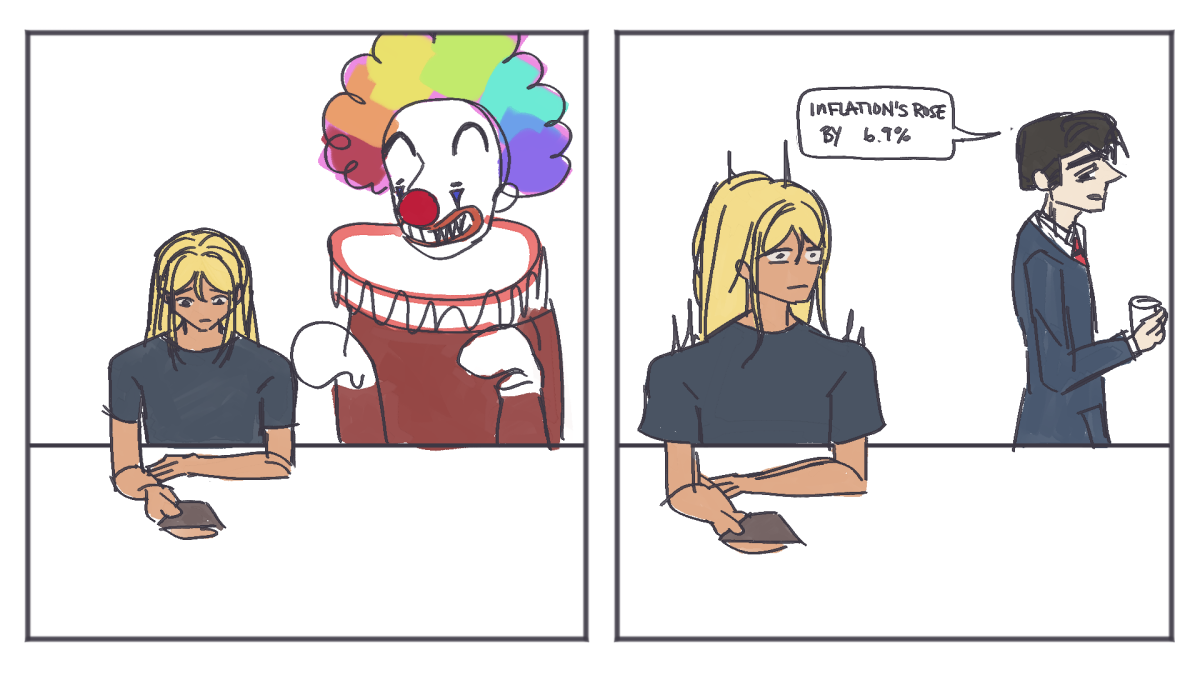From TikTok edits to fan fiction, viewers of crime documentaries and films are increasingly romanticizing serial killers. Notorious figures have become cash grabs for producers and casting agents who capitalize on viewership by casting conventionally attractive lead actors.
In the 80s, serial killers became all the media rage — from Jeffrey Dahmer to Ted Bundy to Richard Ramirez, the news became filled with their disturbing stories. People were shocked at the atrocities, but still tuned in for every breaking story.
The choices in these documentaries have been criticized for being inaccurate, sexualizing the serial killer and encouraging the audience to feel sympathy for them. Romanticization of actors when they are playing these abhorrent roles overshadows what happened to the real life victims.
While news has died down over time, documentaries and movies about notable figures involved in horrific events have been made. Society’s obsession with the macabre led them to the theatres quicker than ever.
In recent years, the documentary series “Monster,” created by Ryan Murphy and Ian Brennan, has gained many fans and widespread media attention. Each season, the series highlights a new homicide case. So far, it has included Dahmer, the Menendez Brothers and Ed Gein.
The first season of “Monster” covers Dahmer, played by Evan Peters, who was a lead in Murphy’s “American Horror Story” for many years. Peters is often recognized for his charming good looks and popularity amongst fans, which is a stark contrast from what was known about Dahmer.
In Dahmer’s season, a charismatic and handsome young actor transforms into an awkward and disturbing predator for the sake of the series. However, viewers took notice of this choice. This casting decision brought to the forefront the ethics of casting conventionally attractive actors as serial killers.
Fan edits of Peters as Dahmer emerged online, similar to the fanmail Dahmer received in prison when he was convicted. Serial killer mania is nothing new, but it should not still be ongoing.
James Slaydon, a fourth-year studying psychology and film at UNC Greensboro, wants to work in freelance horror films and change the industry.
He said that every horror film feels like an exploitation film now. Producers are trying to cast the best looking actors to gain the most money, which is not an ethical choice. He explained how casting attractive actors as serial killers glorifies the things they’ve done and takes away from the victims.
“When I watched Dahmer, it was almost a glorification of this real thing that happened to real people” Slaydon said. “I remember hearing there was not a lot of consulting with the actual people involved and the families so it just felt disrespectful.”
After the backlash from the season about Dahmer, Murphy proceeded to make another season highlighting the Menendez Brothers, who were convicted of killing their parents — a controversial case due to the brothers accusing their parents of severe abuse.
People took note that the series was inaccurate and did not portray the brothers correctly, and Murphy was accused of twisting the narrative by many fans. The Menendez Brothers themselves condemned the show, with Erik Menendez calling the series “blatant lies.”
Additionally, two conventionally attractive actors were cast to play the Menendez brothers. While they looked similar to the real brothers, fan edits and videos were made from the show. The romanticization of actors leads to real life implications, overshadowing the abuse and trauma these people actually endured. People began watching the series for the actors and may not have taken the time to research the inaccuracies and the background of the case.
The third season featured the story of Ed Gein, who brutalized and murdered women. The actor has been criticized for looking nothing like Gein and being far too attractive to play the role, as the real Gein was described as grotesque and unsightly.
Eventually, there must be a solution to these unethical casting practices. Furthering education about the victims of these crimes and more accurate portrayals needs to take priority over a pretty face.
“I would suggest directors focus more on casting people that embody the goal and the look, but not necessarily the good look,” Slaydon said. “Step away from the ideals of Hollywood. We need to sell the story, not the actor.”
These documentaries offer a valuable commentary on the emphasis society places on appearance. People will glorify horrible figures and see them in a new light when they’re being portrayed by a Hollywood heartthrob.
Notable figures in the horror industry should step up and make a change within production studios. The accuracy of a story should never be compromised for the sake of gaining viewership and money through exploiting actors people deem attractive.



